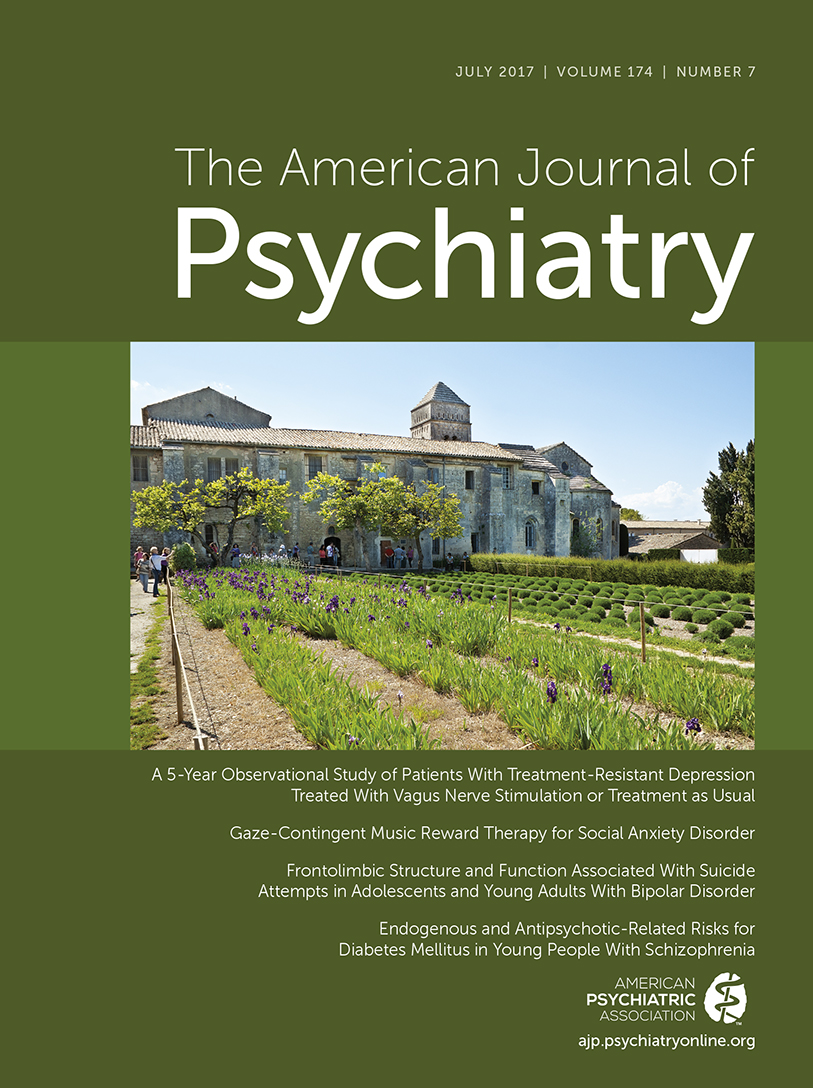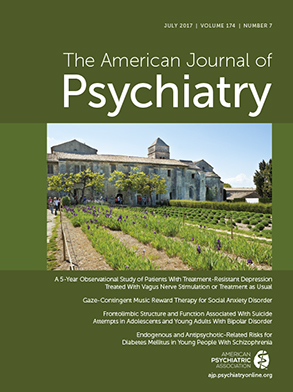T
o the E
ditor: We read with interest the article by John T. Walkup (
1), published in the May 2017 issue of the
Journal. The author has presented an important viewpoint that the conclusions of meta-analyses, which suggest that antidepressants for depression in children and adolescents are not effective or are minimally effective, should be highly suspect because those meta-analyses include improperly designed industry-sponsored studies. To shorten the time frame in these studies, unqualified subjects had been recruited, leading to high placebo response rates and a negative conclusion. On the contrary, studies funded by the National Institute of Mental Health are characterized by their methodological strengths, lower placebo response rates, and meaningful intergroup differences that support the efficacy of antidepressants.
However, we need more data to back this claim. Therefore, we conducted a comprehensive literature search of public databases, and eight placebo-controlled randomized controlled trials of fluoxetine were included for analysis. There were two trials (N=459) with high placebo response rates (≥50%) and six trials (N=885) with low placebo response rates (<50%). The trials with high placebo response rates yielded small differences between fluoxetine and placebo of only 1% (95% CI=−13 to 15). However, in the trials with low placebo response rates, the significant differences between fluoxetine and placebo were found to be 19% (95% CI=11–28). The results showed that even fluoxetine, the only drug approved by the Food and Drug Administration for the treatment of children and adolescents with depression, was invalid in the trials with high placebo response rates, which suggests that the results from the trials with high placebo response rates are unreliable.
In 19 placebo-controlled randomized controlled trials of other newer antidepressants (excluding fluoxetine) for children and adolescents with depression, we found the number of trials in which the placebo response rate was higher than 50%, between 40% and 50%, and lower than 40% to be 10, seven, and two, respectively. We hypothesized that the high placebo response rates may be the reason for the efficacy debate of these newer antidepressants for the treatment of depression in children and adolescents.
We support the author’s viewpoint and reinforce it with data from a comprehensive literature review. In the antidepressant trials of children and adolescents, placebo response rates should be well controlled by strict implementation of trials, which will help studies of antidepressants obtain correct results.

